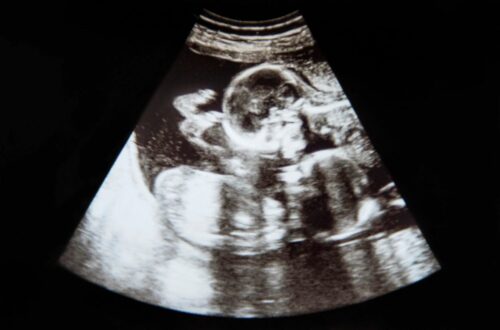2015 was the year of unusual predication. What kind of thing I am mattered more than ever. Consider the following:
“I am black”
“I am a woman”
“I am French”
It was not obvious what it was that made a person any of these things. In ordinary speech we assume that some fact about the world makes a property ascription such as the above statements true about the entity we are referring to. However, the claims made by many people in 2015 were apparently fact-free claims. A man claimed to be a woman, Englishmen claimed to be Frenchmen and a white woman claimed to be a black woman.
Let’s think about gender for a minute. But before I do I want to say that those who struggle with this issue should know that I don’t think struggling with one’s gender is a grounds for me to hate you. I recently read this and it challenged me about how the Christian faith should be grounds for compassion for those who, as a result of our sin, struggle with sexual identity.
That said, there are some philosophical issues I think bear on our claims to be certain kinds of things when there are no apparent facts in virtue of which those claims are made true.
I recently heard about a 50 year old male who claims in fact to be a six year old girl. Notice that the argument made for living as a six year old girl is grounded in a so-called fact. What kind of fact are we talking about? It is not a physical fact, but some psychological fact. Consider the following argument from Paul Heroux in support of men and women who identify as the opposite gender using the bathroom of the gender they identify:
“Sex is what it is to be biologically born male or female, whereas gender is psychologically male or female. Gender identity is “a person’s gender-related identity, appearance or behavior…sincerely held as part of a person’s core identity; provided, however, that gender-related identity shall not be asserted for any improper purpose.” It follows that if gender is part of someone’s core identity it is a protected right. If someone identifies as a male, then it is his right to use a male bathroom. If someone identifies as a female, then it is her right to use a female bathroom”
The argument rests on distinguishing physical properties from the psychological properties of a person. According to the American Psychological Association, transgender people have an “internal sense” that tells them they are of a certain gender; they feel something that tells them a fact about themselves.
I wonder what exactly it is they feel. I don’t mean what it’s like to feel that way, but what thing is being felt. When I am in the rain I feel wet because water is causing me to feel its properties via my sense of touch. Some thing is making itself known to me. But what thing is making itself known to a transgender person? The most sensible answer is to say that it is an entity that indicates gender. In order for that to work the entity cannot be the body. If the entity is identical to the body or part of the body then it is either male or female because of its chromosomes or anatomy. So the entity must be a non-body entity, a soul perhaps. So one might say that although a body is one sex or another a gender is determined by a soul which is not identical to the body in which it resides. I am not sure that this is what is being claimed in this case, but it is a plausible response. However, there is precious little mention of souls among lawmakers and, at a guess, I would say most people among the transgender community are not substance dualists.
One might instead say that mental properties, though not related to a mental substance, are nonetheless not identical and not reducible to physical properties. But those kind of properties are not what we are talking about. A mental property is something like believing or thinking or remembering. But identifying as a gender is not a mental property unless it is the property of a thing. Why? Because mental properties are characterized by aboutness: I think about such and such. I cannot gender-identify about anything.
Gender identity, remember, is a psychological fact, a fact about some thing that the person claims to be able to know through an internal sense. Another question is: what sense are we talking about? We have five senses–sight, touch, hearing, taste and smell. So which sense are we talking about? It is obvious that none on the list are able to detect anything non-physical. A candidate for what we are talking about is, then, the imagination. The imagination is a function of the mind that is able to sense without physical inputs. I can imagine being by the sea, hearing the waves, smelling the air, seeing the sand etc. I’m fairly sure, however, that no transgender person is claiming that they are imagining being another gender.
A better strategy is to be nominalistic about it. Why say that there has to be some fact in virtue of which one identifies as a gender? Why not, instead, say that gender is a social construct like, say, political affiliation? A person can identify as a gender in the same way as he or she might identify as a democrat or republican (see an example of this argument here). But this doesn’t seem to work either. What is it exactly to say that I identify as such and such a political identity? At the very least it is to say that I believe certain things to be true about the world and certain values to follow from it. If I believe that there exist eternal moral laws in the universe, then my politics will reflect that belief. It turns out that to identify with a political party is merely to say that one belongs to a group of people who share similar beliefs about the world. However, there is no analogous set of beliefs about the world that makes gender identification similar to political identification. There is something that makes a person able to identify as a political party namely the holding of a certain set of beliefs about the world. Crucially, those beliefs about the world are held for some reason or other. But that is not true about gender identification.
Another possibility is to deny all natural/non-social categorizations. This would require rejecting a fairly traditional view about things like natural kinds. A natural kind is thought to be a collection of entities that share properties intrinsic in some way to their nature. Scientific realists take these groups to be natural and not a result of the structure of the human mind. In other words, an oak would be a kind of tree whether or not human beings thought so or not. So perhaps there are no real kinds at all. Rather, the structure of the human mind, the languages we use or the social context in which we observe the world dictate our categorization. Kinds, on this view, are constructed by human beings according to human interest and could be otherwise.
The glaring difficulty with this solution is that the sex/gender distinction collapses. On this view to say that there is a distinction between a natural (sex) distinction and a social (gender) distinction between male and female is non-sensical. Clearly, however, there remains obvious anatomical differences of sex. It would be marginally absurd to regard these differences as merely cultural.
Absurd it may be, but something like it has been suggested by those who argue that gender is performative, the result of social conditioning, and that even biological features are used by society on order to affirm a social construct of binary genders. In reality, they argue, there may be no real gender or sex.
The overriding problem is that there appears to be very little grounds for identifying as a gender that is different to the sex that one has been given anatomically. It is not that the person is not feeling something; it is just that there is nothing that can be pointed to as a reason to think the feeling is telling them something true. The is no fact in virtue of which the 50 year old man can say, “see! I am actually a six year old girl.” There is, in reality, nothing to see.
The upshot of what I have been saying is that when transgender ideas are challenged they should not always challenged on moral grounds. Although I think our sinful natures are the problem–we are both actively sinful and we experience the consequences of sin in all sorts of ways–that is not the only issue involved in gender studies.
A final note: the Christian view is that gender is established by God in his act of creation. He makes and determines humans to be of binary sex and gender. This is not merely an act of anatomical and genetic design but of a kind of social construction: in this case, the construction of the Triune mind (and conversation) of God. As Peter Leithart recently commented:
On Christian premises, the body is linguistically constructed, made by the Word who is God and as the image of that Word. It has no existence outside of language, but the language outside of which it has no existence is the divine Logos. Along the path that begins there lies sexual sanity.
Sexual (and gender) sanity is only possible if we accept that we don’t construct or deconstruct our own world, but live, breath and have our being in God’s world.
There is also hope. There is no hope in remaking the world in our own constructed image – that way lies madness. But there is hope in Christ who redeems us and in whom we find coherence and the way back to who we really are (Col 1-2).
I realize this is a contentious topic. Please forgive me if I have stated anything which misrepresents a view. Also if you have a way to solve the grounding difficulty please feel free to comment or contact.



